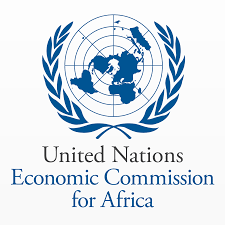The United Nations Economic Commission for Africa (UNECA), has projected Africa’s economy to reach $1,977.6 billion by 2030 through the continent’s use of renewable energy.
The theme of the forum is: “Accelerating Development and Diffusion of Emerging Technologies for a Green, Inclusive and Resilient Africa’’.
“One key opportunity for us lies in the renewable energy market. The value in this market in 2020 was estimated at $881.7 billion and is projected to reach $1,977.6 billion by 2030.
“A 10 per cent share can easily add 200 billion dollars to Africa’s economy.’’
Pedro said another opportunity Africa should not miss out on was the global digital economy.
He said the global digital economy was estimated at about $14.5 trillion, with about 60 per cent of the global Gross Domestic Product (GDP) now depending on digital technologies.
“Initiatives such as the African Trade Exchange (ATEX), which have been conceptualised by ECA and now fully operational under Afreximbank, can connect African entrepreneurs to the global marketplace more effectively.
“It can also link them to sources of finance, and accelerate implementation of the AfCFTA.’’
The acting executive secretary also said Africa should invest in research and development to deliver sustainable industrialisation and economic diversification.
He said currently, most African countries had less than 100 researchers per million inhabitants and 0.5 per cent GDP allocated to research and development.
“As expressed in our theme, we are looking to harness technology for a green, inclusive and resilient Africa.
“There are already many examples of transformative uses of technologies for this purpose across our continent.’’
He gave examples of sustainable development through the Sustainable Development Goals (SDGs) several African countries were involved in to develop their economies.
“In support of SDG 6 — Ensuring access to water and sanitation for all in rural part of Arusha, Tanzania, a nanotechnology-based, low-cost water purification system is serving thousands of lives and creating hundreds of jobs for people.
“To facilitate access to affordable and clean energy, SDG 7, SOLEKTRA International has installed 100,000 solar street lamps and 1,200 solar micro-grids in 15 various countries bringing electricity to many for the first time.
“Various car-hailing services have cut down waiting time, enhanced transparency, and reduced cost of travel across African cities.
“Similarly in 2022, 11,200 bags of ground coffee were sold in a mere one second on the Alibaba E-Commerce platform, to name just a few examples.
“These are just some examples of real solutions that can accelerate the achievement of the SDGs.’’
Pedro, however, said Africa needed to strengthen the enabling environment through informed policies, increase investment in the research and development process, and harness the support of the private sector more effectively.
He said Africa should be at the forefront of a green transformation to accelerate growth, diversify economies and deliver on the SDGs and Agenda 2063.
Pedro further said UNECA was committed to supporting the transformation of Africa in its development process.

























